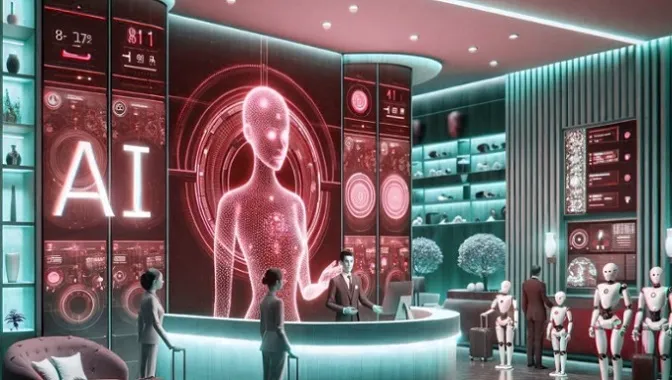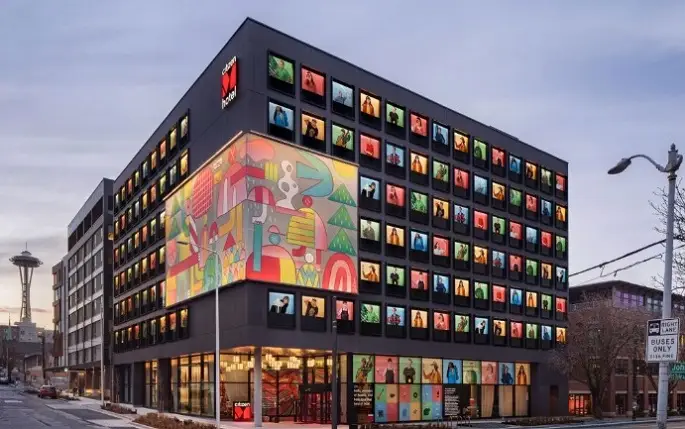
Bangkok Hotel Technology News: Selecting the right hotel management software is one of the most pivotal decisions a small hotel owner or independent operator can make in 2025. In a landscape where tight margins and lean teams are the norms, a smart tech investment can transform a chaotic operation into a streamlined, guest-pleasing, and profitable business. Yet, with so many options available—and hotel technology evolving at lightning speed—many hoteliers find themselves overwhelmed and unsure where to start.

Image Credit: Cloudbeds
This Bangkok Hotel Technology News report aims to demystify the process and walk you through a practical, no-nonsense approach to selecting hotel management software that fits your property’s unique needs while staying ahead of industry trends.
Understanding What Hotel Management Software Really Means in 2025
Hotel management software, often referred to as a property management system (PMS), is no longer just about reservations and billing. It now serves as the digital brain of your operations, centralizing tasks like check-ins and check-outs, housekeeping schedules, guest messaging, rate management, channel distribution, reporting, and even reputation management into a single, user-friendly dashboard. Modern systems are cloud-based, lightweight, scalable, and packed with AI-driven tools that eliminate manual tasks and offer real-time insights into your operations.
For small hotels, this technology is not a luxury—it is a necessity. Without a robust system, small properties risk losing revenue opportunities, delivering subpar guest experiences, and operating inefficiently in a highly competitive market.
Why Choosing the Right Hotel Technology Is More Critical Than Ever
Small hotel owners are under more pressure than ever. Staff shortages, rising costs, and ever-increasing guest expectations mean that running a small property today is more complicated than it was just a few years ago. The right hotel management software automates tedious processes, improves communication, increases direct bookings, enhances upsell opportunities, and provides visibility into financial and operational performance—all without the need for expensive IT teams.
Moreover, cloud-based systems allow hoteliers to manage operations remotely, ensuring the hotel runs smoothly whether the owner is on-site or traveling. For small hotels with limited human resources, such agility can make all the difference between thriving and barely surviving.
Key Features to Demand in 2025
Not all hotel management systems are created equal, and understanding which features are critical for small properties is essential. Here’s what to look for:
Cloud-Based Platform: Easy remote access without costly infrastructure.
–User-Friendly Interface: Intuitive enough for any staff member to use with minimal training.
–Integrated Booking Engine: Capture direct reservations and reduce reliance on OTAs.
–Real-Time Channel Management: Sync availability across Booking.com, Airbnb, Expedia, and more.
–Task and Housekeeping Management: Organize operations efficiently without manual tracking.
–Dynamic Reporting and Analytics: Track key KPIs like occupancy rates, ADR, and RevPAR.
–Automated Guest Messaging: Confirm bookings, upsell services, and collect reviews seamlessly.
How to Choose the Right Software Step by Step
–Define Your Specific Needs: Consider your hotel’s size, typical guest profiles, and operational challenges.
–Set a Realistic Budget: Cloud systems can range from $50 to $300 monthly—focus on ROI, not just upfront costs.
–Research and Shortlist: Look for platforms designed specifically for independent hotels.
–Request Demos or Trials: Never buy without hands-on experience.
–Ask Smart Questions: Understand support availability, onboarding processes, mobile capabilities, and data security.
–Involve Your Staff: Get buy-in early to ensure smooth adoption.
–Make a Strategic Decision: Evaluate based on overall fit and future scalability, not just flashy features.
Avoiding Common Mistakes
Many small hotels fall into the trap of selecting overly complex systems with too many bells and whistles they will never use. Others choose the cheapest option only to find themselves saddled with unreliable support or clunky integrations. Skipping trials or demos is another frequent mistake that leads to dissatisfaction down the road. Always prioritize systems that offer essential features, ease of use, and strong customer service.
Top Choices in 2025 for Small Independent Hotels
-Cloudbeds: Best for comprehensive OTA integration and strong guest communication tools.
-Little Hotelier: Perfect for small hotels and B&Bs needing an easy-to-use, all-in-one solution.
-Freetobook: A fantastic budget-friendly option with practical, streamlined features.
Hospitality Tech Trends Shaping 2025
The tech landscape is shifting fast, and hotel managers must stay informed to maintain a competitive edge. Here are five key trends reshaping hospitality software this year:
-AI Is the New Normal
Artificial intelligence has moved beyond novelty. AI now powers everything from booking assistants to guest messaging, reputation management, and predictive analytics. Systems like Lighthouse and Canary are turning raw data into actionable insights almost instantly, allowing hoteliers to make smarter decisions without adding extra staff.
-Consolidation Is Creating Super Platforms
Mergers and acquisitions are creating powerful, all-in-one platforms that handle everything from distribution to guest communications. Companies like Mews and Cloudbeds are leading this trend, offering deeply integrated solutions designed for seamless user experiences.
-Integration Nightmares Are Ending
AI-driven middleware now automatically handles API integrations, solving one of the most frustrating challenges in hotel tech. This means faster setups, fewer errors, and the ability to choose best-in-class tools without fear of compatibility issues.
-No-Code Customization Is Empowering Teams
Thanks to AI-enhanced no-code tools, hotel staff can now build custom dashboards, automate tasks, and tailor workflows without needing developers. This democratization of tech allows even small teams to adapt software to their precise needs.
-AI Is Supercharging Outsourced Services
With AI reducing costs and boosting efficiency, high-quality outsourced services like revenue management and marketing have become more affordable and accessible to independent hotels than ever before.
-Hospitality’s New Era of Opportunity
In today’s competitive environment, choosing the right hotel management software is about more than keeping up with technology—it is about setting a foundation for growth, resilience, and exceptional guest experiences. Whether you operate a cozy six-room guesthouse or a fifty-room boutique hotel, the right HMS will enable you to automate routine tasks, enhance your online visibility, increase direct bookings, and optimize every stage of the guest journey.
Modern platforms, especially those designed specifically for small independent properties, offer powerful tools that were once only available to big hotel chains. From seamless API integrations to AI-powered guest communication and predictive analytics, small hotels now have access to game-changing technology that can significantly improve operational efficiency, revenue generation, and customer satisfaction. Choosing wisely today will not just future-proof your operations but also free up your team to focus on what truly matters—creating memorable experiences for your guests.
For the latest Bangkok Hotel Technology News, keep on logging to Bangkok Hotel News.





